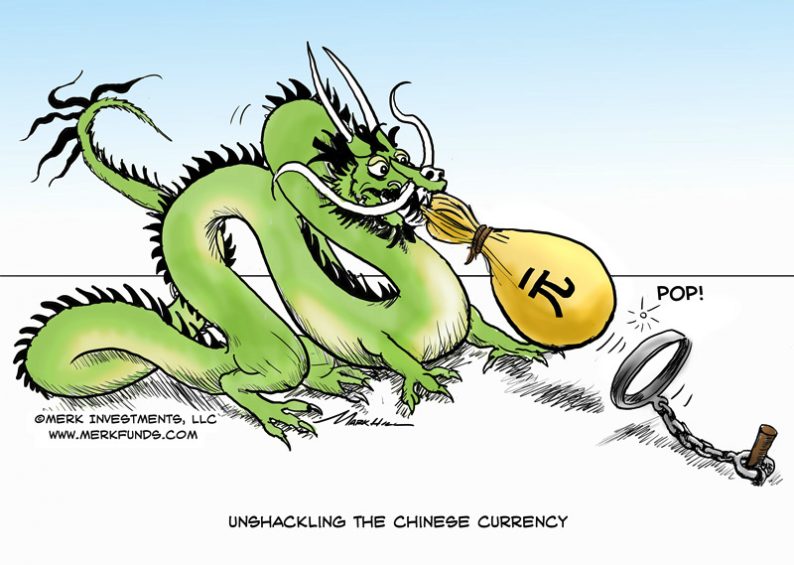Once you think of China as a teenager in her “awkward stage,” it may become easier to understand the unfolding dynamics. When it comes to foreign exchange, China’s latest move may be best explained by her desire to play with the grown-ups. This may have implications that go far beyond the U.S. dollar and China’s Yuan (“CNY” or also the Renminbi or “RMB”).

On August 11, 2015, the People’s Bank of China (PBoC), set the CNY fixing nearly 1.9% lower versus the U.S. dollar compared to the previous day;1 during the subsequent days, the currency fell further, but – as of this writing – has stabilized. Resulting headlines included:
We all like a little drama, but let’s first debunk these headlines before focusing on what’s happening:
Barron’s relates China’s move to President Richard Nixon’s August 15, 1971 “temporarily” abandoning what was left of the gold standard (Barron’s 8/17/2015). As far as significance is concerned, we tend to agree that it may be as relevant. But Nixon’s move was one of throwing in the towel after much gold had left U.S. vaults. China, in contrast, holds about $1.5 trillion in Treasuries (“about” because two hundred billion are held via custodial accounts in Belgium and other places that may or may not all be publicly disclosed) and while there have been times this year when China has sold Treasuries, we see no sign of desperation; details of major foreign holders of Treasury Securities are available at Treasury.gov.













Leave A Comment